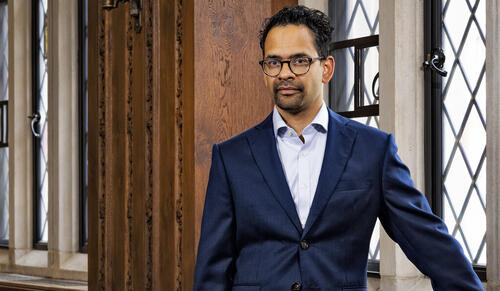Wiles Lecture Series
The Wiles Lectures were founded in 1953 by Mrs Austen Boyd of Craigavad, Co. Down, in memory of her father, Thomas S. Wiles of Albany, New York. Mrs Boyd generously endowed a trust fund to support an annual series of lectures at Queen's University Belfast ‘to promote the study of the history of civilisation and to encourage the extension of historical thinking into the realm of general ideas’.
The fund brings to Belfast each year an expert in a particular field of historical scholarship to deliver four lectures on successive days, related to the lecturer's research and reflecting on the wider implications of their work for historical understanding.
The Wiles Trust also supports other scholarly activities at Queen's, including a series of Wiles Colloquia on historical topics, convened by members of School staff.
Janet Boyd and the Wiles Lectures
For more information, contact the Chair of Trustees, Prof. Peter Gray
The Wiles Lectures for 2026 will be given by Sunil Amrith,
Renu and Anand Dhawan Professor of History at Yale University,
on the topic:
'Towards a History of Repair'
These four public lectures will be given in person at Queen's University Belfast on 20-23 May 2026.

The lectures will focus on repair as a facet of modern environmental history. The first lecture will explore repair as a neglected feature of the history of capitalism; the second will approach repair by rethinking the process of postwar reconstruction; and the third and fourth will consider ecological repair in an age of climate change. The lectures will be global in scope but will draw most deeply on South and Southeast Asian examples.
More details to follow.
